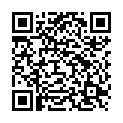|
|
|
| Module code: MASCM-582 |
|
|
4S (4 hours per week) |
|
6 |
| Semester: according to optional course list |
| Mandatory course: no |
Language of instruction:
German |
Assessment:
Term paper with presentation
[updated 13.09.2018]
|
MAMS-582 (P420-0030) Marketing Science, Master, ASPO 01.04.2016
, optional course
MAMSc-582 Marketing Science, Master, SO 01.04.2025
, optional course
MARPF-582 (P420-0030) Accounting and Finance, Master, ASPO 01.10.2017
, optional course, course inactive since 25.03.2022
MASCM-582 (P420-0030) Supply Chain Management, Master, ASPO 01.04.2016
, optional course
MASCM-582 (P420-0030) Supply Chain Management, Master, ASPO 01.04.2017
, optional course
|
60 class hours (= 45 clock hours) over a 15-week period.
The total student study time is 180 hours (equivalent to 6 ECTS credits).
There are therefore 135 hours available for class preparation and follow-up work and exam preparation.
|
Recommended prerequisites (modules):
None.
|
Recommended as prerequisite for:
|
Module coordinator:
Prof. Dr. Jochen Pilhofer |
Lecturer:
Richard Haxel
[updated 09.03.2016]
|
Learning outcomes:
After successfully completing this module, students will have learned skills that are indispensable for an entrepreneur or entrepreneurial manager according to Thomson. This includes skills for risk/crisis management and decision making under pressure. In the first business simulation, students will create a business plan using market data and head-up a company in its start-up phase.
In the second business simulation, students will develop internationalization strategies for an established company.
Both business simulation games will be based on a computer-aided simulation.
Team participants must make their own market decisions in the periods between the mandatory sessions. In doing so, they will deepen their knowledge and practical skills with regard to decision theory.
[updated 05.12.2019]
|
Module content:
Part A: Topsim StartUp:
Testing ideas: demand potential, target groups, positioning, competitive advantages, product life cycle
Creating a business plan using a business plan wizard
Founding a company and related constitutive decisions: borrowing money, purchasing/renting buildings,
hiring and training staff
Market entry: a real competitive situation, customer groups, product awareness, capacity utilization,
cost and revenue structure
Presentation for investors
Part B: Topsim Going Global
Strategies and challenges for expansion into new markets worldwide
Defending your own market
Analyzing the potential of different economic regions
Penetrating other markets: evaluating chances and risks
Understanding and adapting to culture-specific customer requirements
Global logistics: transport routes and costs
Thinking in business alternatives
Strategic sales and production alternatives
Analysis and targeted use of market barriers
[updated 05.06.2025]
|
Teaching methods/Media:
Seminar (partly as a block course, partly during the semester)
Computer-based business simulation game, laptops will be provided. Presentations and company decisions will take place during periods of mandatory attendance. After the seminar, groups will cooperate to write a term paper.
[updated 13.09.2018]
|
Recommended or required reading:
Manuals and background information will be handed out to the participants before the course begins.
[updated 13.09.2018]
|


